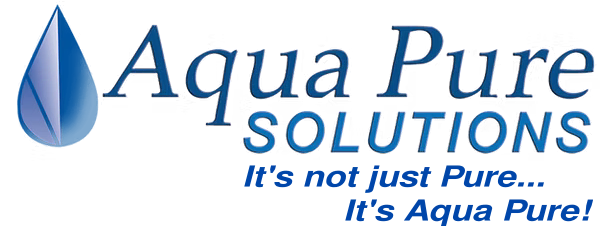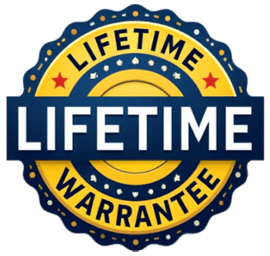

Why Southwest Florida Residents Invest in Water Treatment Systems
Living in Southwest Florida means enjoying beautiful beaches, stunning sunsets, and a relaxed coastal lifestyle. However, beneath this paradise lies a less glamorous reality: the region’s water quality presents unique challenges that many residents tackle with sophisticated filtration systems. From Fort Myers to Cape Coral, Naples to Lehigh Acres, homeowners frequently install water softeners, conditioners, and reverse osmosis systems—not as luxury additions, but as practical necessities for daily living.
The peninsula’s distinctive geological makeup, combined with environmental factors specific to the region, creates water conditions that can affect everything from the taste of your morning coffee to the lifespan of your household appliances. Understanding why these water treatment solutions have become commonplace in Southwest Florida homes requires examining the underlying water quality issues and the effective technologies developed to address them.
Understanding Southwest Florida’s Water Challenges
Southwest Florida’s water supply faces several inherent challenges that stem from both natural and man-made factors. The region’s aquifers, which provide most of the drinking water, contain high concentrations of minerals that have dissolved from the limestone bedrock over thousands of years. This geological reality creates what experts classify as “hard water”—water with elevated levels of calcium and magnesium.
Additionally, the tropical climate plays a significant role in water quality fluctuations. During the intense summer heat, water evaporates more rapidly, concentrating minerals and sediments in the remaining supply. The rainy season, which brings approximately 55 inches of annual rainfall (compared to just 6 inches in places like Los Angeles), introduces its own set of contaminants as runoff carries agricultural chemicals, road pollutants, and other substances into the water system.
For homes utilizing well water, sulfur compounds naturally present in the ground can create that unmistakable “rotten egg” odor that makes drinking and even showering an unpleasant experience. Meanwhile, city water systems, while treated at municipal plants, often travel through aging infrastructure before reaching residential taps, potentially picking up additional contaminants along the way.
The combination of these factors means that without additional treatment, Southwest Florida residents may encounter water that tastes unpleasant, damages plumbing fixtures, leaves residue on dishes, causes dry skin and hair, and potentially contains unwanted chemicals or microorganisms.
The Hidden Costs of Untreated Hard Water
When left untreated, Southwest Florida’s hard water creates financial burdens that accumulate over time, often without homeowners realizing the connection. The mineral deposits gradually form scale inside pipes, water heaters, coffee makers, and other appliances that regularly use water. This buildup restricts water flow, reduces heating efficiency, and significantly shortens equipment lifespan.
Water heaters operating with hard water can lose up to 30% of their efficiency within just a few years, driving up energy bills month after month. Dishwashers and washing machines similarly suffer from decreased performance and more frequent breakdowns when continuously exposed to mineral-rich water. The repair and replacement costs for these appliances represent just one dimension of hard water’s financial impact.
On a daily basis, hard water forces households to use more soap, shampoo, and detergent to achieve the same cleaning results, as the minerals interfere with these products’ effectiveness. Clothing washed in hard water often appears dingy even when clean, and may wear out faster due to mineral residue trapped in the fabric fibers. Glassware and fixtures develop spotting and film that becomes increasingly difficult to remove over time.
Perhaps most concerning for homeowners is the potential for premature plumbing failures. Pipes gradually narrow from scale buildup, reducing water pressure throughout the home. Eventually, this can necessitate expensive repiping projects that could have been avoided with proper water treatment from the beginning.
Water Softeners: The First Line of Defense
Water softeners represent the most common solution for addressing Southwest Florida’s hard water problems. These systems target the primary culprits—calcium and magnesium ions—through an ion exchange process that replaces them with sodium ions. The result is water that feels smoother, cleans more effectively, and won’t leave damaging scale deposits throughout the home.
The technology behind water softeners is relatively straightforward but remarkably effective. The system contains resin beads charged with sodium ions. As hard water passes through these beads, the calcium and magnesium ions—which carry a stronger positive charge—displace the sodium ions and attach to the resin. The softened water, now containing small amounts of sodium instead of hardness minerals, continues to flow into the home’s plumbing system.
Periodically, the system must regenerate by flushing the resin bed with a salt solution that removes the accumulated calcium and magnesium and replenishes the sodium ions. This regeneration process typically occurs automatically based on water usage or a preset schedule, requiring minimal homeowner intervention beyond occasionally adding salt to the brine tank.
For households concerned about sodium intake, potassium chloride can serve as an alternative to sodium chloride in many softener systems, though at a higher operational cost. Additionally, some newer “salt-free” conditioning technologies have emerged that alter the crystal structure of hardness minerals without removing them, preventing them from forming scale while avoiding the addition of sodium to the water.
Reverse Osmosis: Creating Bottled-Quality Water at Home
While water softeners excel at addressing hardness issues, they don’t remove many other contaminants that may be present in Southwest Florida’s water. This is where reverse osmosis (RO) systems come into play, offering a more comprehensive filtration solution that produces exceptionally pure drinking water.
Reverse osmosis works by forcing water through a semi-permeable membrane with microscopic pores that allow water molecules to pass through while blocking larger molecules, including most contaminants. The process effectively removes up to 99% of dissolved solids, including chlorine, lead, arsenic, fluoride, pesticides, and even microscopic organisms that might survive conventional treatment methods.
Most residential RO systems include multiple filtration stages beyond just the membrane. Pre-filters remove sediment and larger particles that could damage the membrane, while carbon filters eliminate chlorine and improve taste and odor. Some advanced systems also incorporate post-filters or remineralization stages that add beneficial minerals back into the purified water for improved taste and health benefits.
One consideration with reverse osmosis is water efficiency. Traditional RO systems produce several gallons of wastewater for each gallon of purified water, though newer, more efficient models have significantly improved this ratio. For environmentally conscious homeowners in Southwest Florida, where water conservation is increasingly important, selecting a high-efficiency RO system represents a responsible choice that balances water quality with sustainability.
Whole House vs. Point-of-Use Filtration: Making the Right Choice
Southwest Florida homeowners face an important decision when implementing water treatment: should they treat all water entering the home, or focus only on drinking water? Both approaches offer distinct advantages depending on household needs and priorities.
Whole house filtration systems, installed at the main water line entry point, treat every drop of water used in the home. This comprehensive approach ensures that not only drinking water but also shower water, laundry water, and water used in appliances receives the same level of treatment. For households dealing with significant hardness issues or problematic well water containing sulfur or iron, whole house treatment provides the most complete solution.
The primary benefits of whole house systems include extended appliance life, improved plumbing longevity, better-feeling showers, and the convenience of having quality water from every tap. However, these systems typically require larger initial investments and more space for installation compared to point-of-use alternatives.
Point-of-use systems, by contrast, treat water at specific locations—typically the kitchen sink for drinking and cooking water. The most common example is an under-sink reverse osmosis system that provides highly purified water through a dedicated faucet. These systems cost less upfront and can deliver exceptional drinking water quality, but they don’t address whole-house issues like appliance protection or shower water quality.
Many Southwest Florida homes ultimately implement a hybrid approach: a whole house water softener to address hardness throughout the home, combined with a point-of-use reverse osmosis system for superior drinking water. This combination provides comprehensive protection while optimizing the cost-benefit ratio of water treatment investments.
The Environmental Impact of Water Treatment Choices
As environmental awareness grows among Southwest Florida residents, the ecological footprint of water treatment systems has become an important consideration. Traditional water softeners, while effective at addressing hardness issues, have faced scrutiny for their salt usage and discharge of brine during regeneration cycles. This salt-laden wastewater can potentially impact local ecosystems, particularly in sensitive coastal areas.
In response to these concerns, the water treatment industry has developed more environmentally friendly alternatives. Salt-free water conditioners use technologies like template-assisted crystallization to prevent scale formation without requiring salt or producing brine discharge. While these systems don’t technically “soften” water by removing minerals, they do effectively prevent many of the problems associated with hard water.
For reverse osmosis systems, water efficiency represents the primary environmental consideration. Newer, high-efficiency RO systems have dramatically reduced the water wasted during the filtration process, with some models achieving recovery rates of 80% or higher—a significant improvement over older systems that might waste four gallons for every gallon produced.
Some environmentally conscious homeowners have also begun implementing rainwater harvesting systems to complement their water treatment strategies. By collecting and filtering rainwater for non-potable uses like irrigation, these systems reduce demand on municipal water supplies and aquifers while making productive use of Southwest Florida’s abundant rainfall.
Conclusion: Investing in Water Quality for Southwest Florida Living
The prevalence of water treatment systems in Southwest Florida homes reflects both the region’s unique water challenges and residents’ commitment to maintaining healthy, comfortable living environments. From protecting valuable appliances and plumbing to ensuring safe, great-tasting drinking water, these systems deliver benefits that most homeowners consider well worth the investment.
As water quality concerns continue to evolve with changing environmental conditions and growing awareness of emerging contaminants, water treatment technologies will likewise advance to meet these challenges. For current and future Southwest Florida residents, understanding the region’s water quality issues and available treatment options remains an essential aspect of homeownership in this beautiful but demanding coastal environment.
By consulting with qualified water treatment professionals who understand the specific challenges of Southwest Florida water, homeowners can develop customized solutions that address their particular concerns while respecting both budgetary constraints and environmental considerations. With the right approach to water treatment, the paradise of Southwest Florida living can extend right to the tap.
